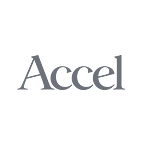With 2015 behind us, we thought we’d share some thoughts about the year and what it might mean for 2016.
“Bubble” or not?
Let’s first tackle the elephant in the room. Questions about the “bubble” came up a bunch in 2015, and for good reason. But from our perspective, it’s not quite the right question. A “bubble” implies an impending and far-reaching collapse. We don’t think the macro situation is quite this dramatic. There will, however, continue to be a reset in valuations in sectors where business models and unit economics are unproven. Shoring up operating discipline and pushing towards profitable unit economics is already being addressed with greater urgency in 2016.
Unit economics and operational discipline come roaring back in 2016
This is constructive and promising. While last year marked unbridled opportunism, this didn’t always jive with long-term sustainability. Companies that intensify their focus here will be better positioned. Look no further than Australia-born Atlassian, which marked the industry’s largest IPO of 2015. We’re proud to have been the first and only VC investor because Atlassian represents a company with strong growth and strong operating discipline.
And disciplined, well-run businesses will have pretty compelling options. 2015 saw 77 companies go public alongside 372 M&A transactions. The teams at LearnVest (acquired by Northwest Mutual), lynda.com (acquired by LinkedIn) MyFitnessPal (acquired by Under Armour) and TaxiForSure (acquired by Ola) – among others – became part of other strong organizations to take their long-term ambitions even further.
A fascination with a technology-driven future
Does this mean that the spirit of innovation is fading? Hardly. There are still a lot of big and compelling ideas that fascinate us. For example:
- The march towards a quantified, autonomous future continues thanks to the confluence of predictive analytics, artificial intelligence, machine learning and computer vision technologies. These areas will continue to revolutionize how businesses figure out the best way to serve the needs of their customers. It will give people access to all sorts of intelligent machines too. DJI’s high-performance, easy-to-use Unmanned Aerial Vehicles (UAVs) have introduced a growing ecosystem of applications with use cases across a range of industries. Meanwhile, Google and Tesla have shown autonomous cars are very, very real.
- The social graph continues to reorient how people interact. We’ve long believed in the Facebook-led narrative that change and opportunity come from expansive social networks. We see this through companies like GoFundMe, which in 2015 reached a $1 billion milestone of crowdfunded donations, or in Spotify and its use of the social graph to power a global music community.
- Facebook’s human-centered approach has also inspired how enterprise-grade tools change the way businesses collaborate, communicate and innovate. Platforms like Slack, InVision and HipChat are resetting expectations for workplace software.
- Similarly, open source software has inspired a rethinking of the technology engine in the enterprise — 31 billion lines of code are now committed to open projects (think of the code powering all of Google’s services, and then increase it 15x).
- And we believe that we’re in the golden age of video as consumers demand new and faster ways — from professionals and amateurs alike — to fill their appetite for mobile content (powered by new mobile broadband video capabilities).
- It’s still early but augmented/virtual reality experiences from Oculus and others hint at a future where video evolves into something immersive and interactive. The long-term impact on how we do things and experience things is profound and far-reaching.
- The APX Economy is our description of a trend where once-burdensome business processes are now being reduced down to third-party APIs. Fast-growing companies can now outsource non-core capabilities like payment systems (Braintree), analytics (Segment), search (Algolia) and background checks (Checkr) via a few lines of code to streamline their operations.
- And as we learned at our CIO Summit earlier this year, hardening security was top-of-mind and will remain a focus in 2016. CIOs need new systems and processes in a world where we’re constantly defending against new threats and neutralizing those that have already breached our systems.
- People have more opportunity to capitalize on their talents wherever they are. It’s well understood that thanks to cloud services, internet commerce and viral marketing, entrepreneurs have the means to build disruptive companies from just about anywhere — like New York City, Bangalore, London and Helsinki. What’s less understood is how the rise of the “on-demand economy” will continue to push how people think about the notion of employment. Will people have greater and greater freedom to decide how to best capitalize on their time and talents? It’s something we’ll continue to track with interest.
After all, it’s a marathon, not a sprint
We wholeheartedly believe in the promise and potential of technology to impact people’s lives in profoundly positive ways. Yet it’s easy to confuse promise and potential with true impact. Achieving true impact is a long journey. One that requires staying focused on the fundamentals and embracing the grit and perseverance required for greatness. That’s what we take forward into 2016. A conviction to help our companies make the most of the opportunity before them.
Time to get to work.
